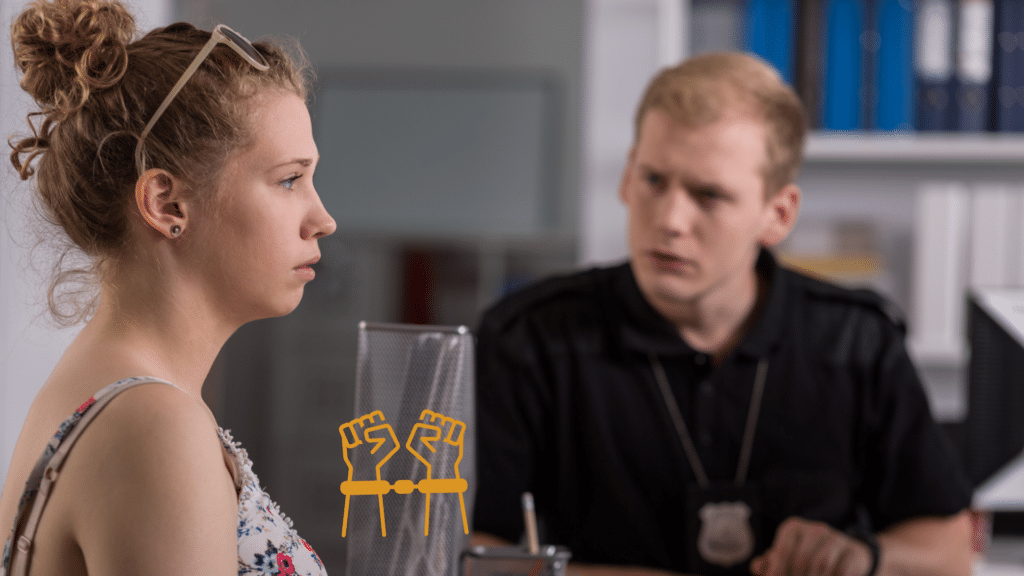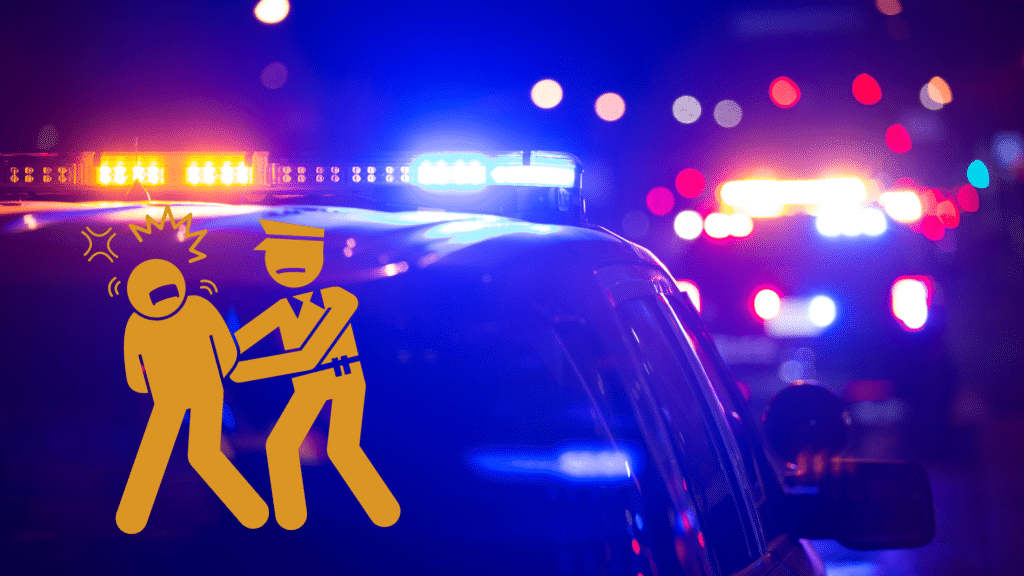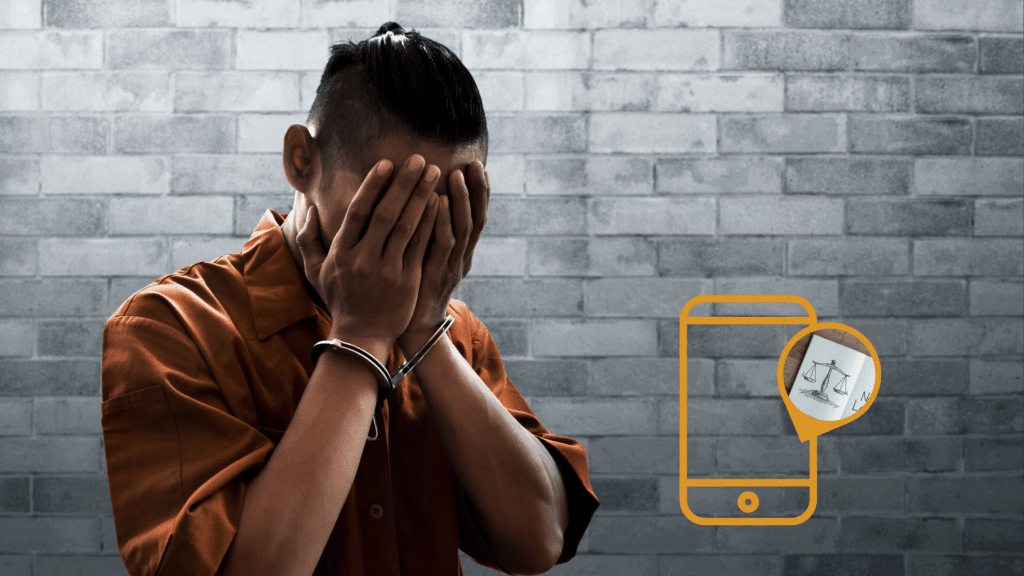Committing a crime can land you in a world of trouble if caught and knowing what the right thing to do if you are caught is essential. Being caught for committing an offence or crime is already a bad situation, however you can make that situation a lot worse depending on how you choose to act afterwards. Save yourself the time, trouble and possible consequences and consider the information below carefully.

If I Am Caught for Committing A Crime, Where Will I Be Taken?
If you are caught either committing a crime or after you have committed a crime, you will likely be arrested and taken to your local or nearest police station. It really depends what crime you commit as to whether this will happen but generally, unless you commit traffic infringements or minor traffic offences, you will be taken to the police station.
If you are placed under police arrest then it is important to remain calm and do exactly as direct by the police officer or officers. If you choose not to go with the police then you would be subject to further charges, inclusive of resisting arrest. This will be discussed further below.
What Should I Do If I Am Placed Under Arrest?
If you are arrested, you must stay calm as panic will do nothing to assist the situation. The second thing you should do is remain silent. You may have heard this term referred to in movies, but it really is the best advice. You are only required to answer identifying information (i.e. name and address, etc.) and are not required to provide police with any further information without legal representation present. The police are also required to inform you upon your arrest that you “have the right to remain silent”. This warning is as much for your protection as it is theirs.
If you find yourself in a situation where you believe you have been arrested unfairly or not on reasonable grounds, it is best to wait until you have been taken to the police station to discuss this. Any forms of agitation, aggression or anger will be viewed threateningly given the situation and can lead to further charges or a lack of trust between yourself and the police officer.
If I Am Arrested, What Is The Process?
When you are arrested, you will be taken to your nearest or local police station for processing. When you are processed, all your possessions will be taken, your fingerprints will be taken and your name, address and verifying information will be recorded and clarified. It is then your legal right to be able to notify someone of what has happened as well as seek legal advice.
You will then be required to partake in a police interview with lawyers either present or not depending on your choice to seek legal advice. The interview will take place in a small room, usually with no windows. The idea is to make you feel small and scared so that you will confess to committing your offences.
You can refuse to participate in an interview however this is not always the smartest move. Perception is everything and if you refuse to participate in the interview then you are giving the perception of a guilty conscious. This is always a strategy best discussed with your lawyer.
If I Am Arrested, Can I Get Legal Advice?
Yes, if you are arrested you will be given the chance to seek legal advice. You can also request not to be interviewed until after you have received legal advice or until you can have a lawyer present. You can do the interview without legal representation however, it is your choice.
It is important that if you are charged and then released that you seek legal advice as soon as possible to avoid any delays. You will be provided with a court attendance notice upon your release and this will detail the date you need to appear in court. Being proactive about seeking legal advice so as not to delay your matter being heard pays respect to the court and can assist in leniency with sentencing.
What Type of Legal Advice Do I Need To Seek?
If you have been arrested for committing a crime then you will need to seek advice from a criminal lawyer. Criminal defence lawyers are specialized in the area of criminal law and usually practice exclusively in that area. Criminal lawyers can advise of the following;
What defences are available to you;
Whether you should plead guilty or not guilty;
What the possible sentencing outcomes are; and
Whether it is likely you will serve jail time.
Your starting point is to decide whether you should plead guilty or not guilty to the charge because that will determine the pathway forward and will highlight whether the matter can be resolved quickly or by way of hearing or trial.
Is There A Difference Between Criminal Lawyers?
There are usually two types of criminal lawyer, solicitors and barristers. Solicitors usually engage in the client based work of taking instructions, gathering evidence, attending minor court dates and preparing the matter for trial. Barristers however, engage in hearing and trial work and argue before the court. In New South Wales, there are an array of barristers to choose. Your lawyer will help you decide on the most suitable barrister for your matter type and budget.

What If The Police Officer Uses Unreasonable Force During An Arrest?
During an arrest, it is acceptable for a police officer to use reasonable force where necessary. This is usually in circumstances where the person tries to resist arrest instead of choosing to go with the police. Police officers are able to use reasonable force to overpower the person and maintain a safe environment.
Reasonable force is not an opportunity for assault, rather it is designed so that the person is disarmed. Ideally, the force will not require medical attention. If unreasonable force is used then the outcome may be the arrest of the police.
If I Am Caught Committing A Crime, Will I Be Released On Bail?
If you have been caught committing a crime and are taken into police custody then you may be released on bail if the police consider it appropriate. The police must be satisfied that you do not pose an unacceptable risk to either a specific person, group of people or the wider community.
If you are released from custody it is with the understanding that you will appear when your matter is in court at a later date. If you fail to appear for your court date while you are subject to bail conditions then a warrant can and will be issued for your arrest. The warrant will be executed without your knowledge and your eventual arrest means that you would likely not be eligible to continue being on bail.
Is It Normal To Feel Scared?
Committing a crime is a serious act and it is normal to be scared of the consequences of your actions. Each step of the process after you have been arrested is critical and it is important you seek legal advice as soon as possible for all offences you have committed.



